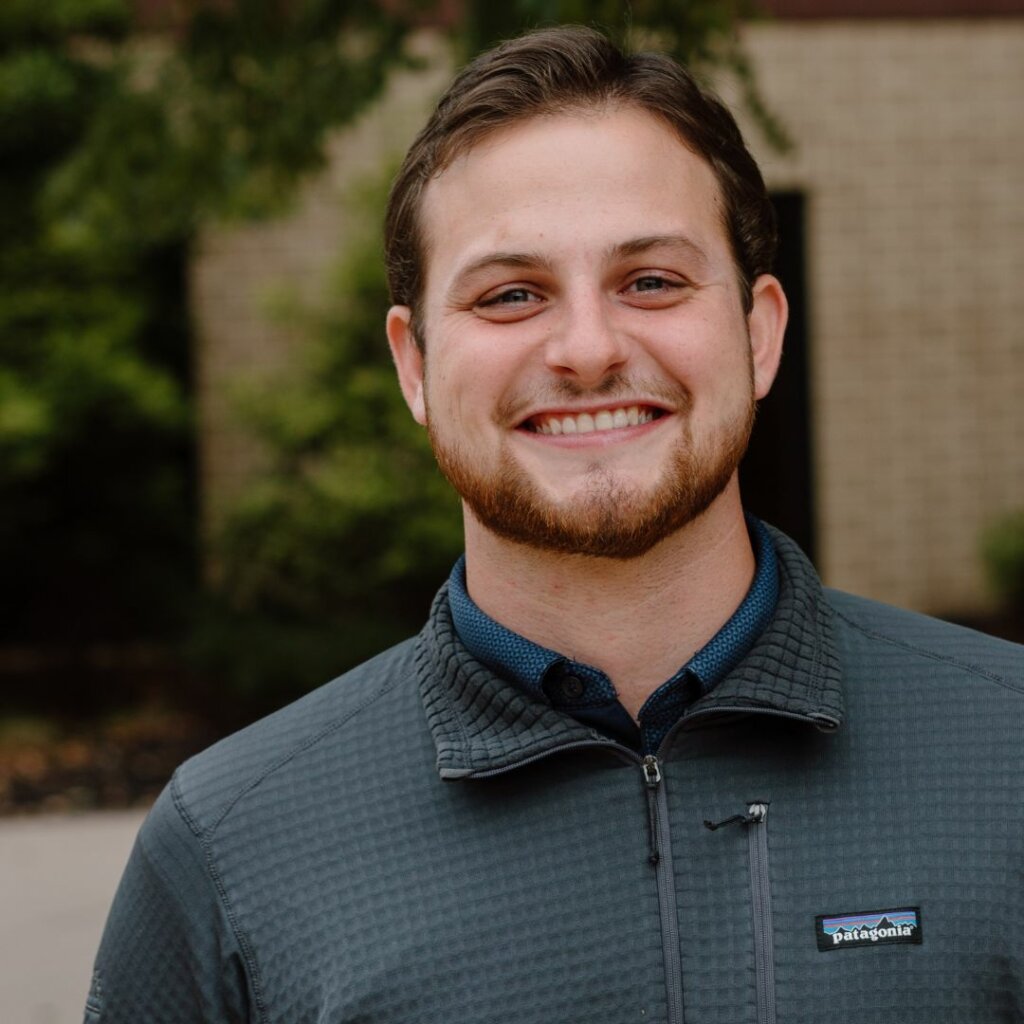Incarnational Ministry

Smith hopes to help Cincinnati Young Life meet students where they are.
To change the direction of young people’s lives, one must meet them first where they are located, physically and spiritually. For Johnny Smith (WC ’18), who recently became a full-time staff member in Young Life’s Cincinnati branch, that means returning to the sticky floors of high school.
“We like to use this term: incarnational ministry,” Smith said. “It’s the idea of stepping into other people’s worlds. It’s not just saying, ‘Hey, come to this event.’ We’re trying to build relationships and meet people where they are.
“(The more I learned about it), I was like, ‘Gosh, this is incredible. This feels like what Jesus was doing when He came to earth and how He did ministry.’ I fell in love with it.”
Young Life began in 1941 in the shadows of World War II. Jim Rayburn, a Presbyterian seminary student, was called to reach high school students disinterested in Christianity.
Rayburn helped found Young Life, a ministry whose approach is to go where teenagers are, develop friendships, and, by doing so, earn the right to be heard.
To see Smith at work, go to the doors of Cincinnati Princeton High School at the school’s dismissal, in the stands of the Vikings’ football and basketball games, or anywhere else students might congregate.
“There’s a ton of high school kids out there who don’t know Jesus and they’re not coming to church,” Smith said. “The easiest place to find where high school students are is in a high school. We’re trying to meet them on their turf.”
Smith said his time at Worthington Christian fostered a desire to be in a leadership position. He credits teachers like Dr. Joe Price and Mrs. Rhonda Hearon for building a strong knowledge of the Bible and a sense of discipline he needed.
“The administration set us up with the way they loved us and showed how everything is connected to the Bible,” he said. “The way we were treated was a constant reminder that Jesus cares for and loves me.”
Smith didn’t discover Young Life until after graduating from Worthington Christian. A friend talked Smith into attending a leadership meeting while the WC grad attended Columbus State.
Smith, who led a fellowship group of classmates while he was a student at Worthington Christian, said Young Life was a perfect fit for him.
“(After high school) I wasn’t completely sure what I wanted to do with my life,” Smith said. “Someone said, ‘Hey, this might be an option for you.’ They have a week of events for college students, specifically freshmen, to help people get involved with the ministry.
“I thought, ‘I’ve not been around people that were this fun and still love Jesus.’ I did not want to become a leader initially, but I quickly realized these people are extremely missional.”
Smith served as a Young Life leader for almost four years in Columbus, directing groups at McCord Middle School in Worthington for six months and at Dublin Scioto for nearly three years.
“I probably spent an equal amount of time at Scioto as I did at Ohio State,” he said with a laugh.
A recent study by Barna shows one in four teens (22%) worldwide and one in three teens in the United States consider themselves a committed Christian. However, 77 percent of high school students in the United States are motivated to learn what Christ has to offer.
After high school, the numbers become bleak. A study by Fuller Seminary states youth groups often focus on “providing entertainment and pizza rather than building up young people in their faith.” With a lack of the formation of spiritual roots, teens struggle to maintain their faith after they leave home. Studies by Barna and USA Today state nearly 75 percent of high school students who said they were Christians in high school fall away from their faith after graduating.
According to Smith, all one needs to experience the necessity of Christian missionaries is sit in the bleachers of a high school sporting event.
“After hearing the conversations around you for about 20 seconds, you say to yourself, ‘This is a dark place,’” he said. “It’s broken, and the kids are hurting. Depression, anxiety, and suicide are on the rise. Young people are looking for anything to fill that God-shaped hole in their lives.”
To become a full-time staffer for Young Life, leaders must raise enough money to support themselves and their ministry. According to Smith, the only thing harder than reaching teens is asking for the money to support his mission.
“That’s easily the worst part of being on Young Life, and I almost didn’t go on staff because of that,” Smith said. “It’s very humbling, but (the amount of support I received affirmed God has put me here. It’s refreshing to know I’ve got people behind me.”
